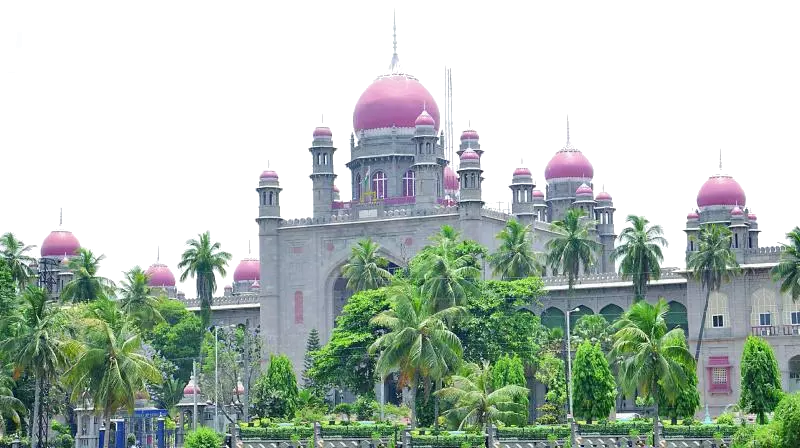HC Rejects Revision for Paternity Test

Hyderabad: Justice K. Lakshman of the Telangana High Court upheld an order of the civil court refusing a paternity test after the death of the father. The judge was dealing with a revision petition filed against an order of the fifth additional district judge, Khammam, by order in March 2023. The judge rejected the petition filed by the plaintiff for a paternity test, who had filed a civil suit for partition of certain property claiming to be the second son of his father's first wife. He impleaded his mother and his elder brother to the suit and also his step mother and her two sons. The father died in 1999. It is the case of the defendant that the plaintiff is not the son of late Veera Swamy and that he has not filed any proof, neither educational records nor any other identity proofs. In the suit for partition, he sought a direction that the defendants should undergo DNA test at the Centre for Cellular and Molecular Biology (CCMB), Hyderabad by giving blood samples and directions to the authorities to conduct the test as to biological paternity. The court pointed out that this was not the case of the legitimacy of the plaintiff or matrimonial case. Even for a while considering the plea of the petitioner for conducting a paternity test, the alleged father has to be alive or at least his parents, brothers, or sisters and no such person is alive in this case. If the alleged father is dead, the samples obtained in autopsy or through skeletal remains of such others are useful in conducting the said test and no such samples are available in this case. In the absence of such samples, the very purpose of conducting the DNA test will not be served. Dealing with the DNA test, Justice Lakshman said that DNA technology, as a latest tool of forensic science, is a by-product of modern genetic science. The said science established the belief that the pattern of chemical signals i.e. the genetic structure which may be discovered with the DNA molecule in the cells of each individual, is unique and different in every individual. As such, the chemical structure of the DNA in the cells of each individual is the sole determining factor to identify one separately from another except genetically identical twins. The discovery of modern genetic science can be used in the identification of criminals in criminal cases by analyzing various objects recovered on the crime spot like anybody's fluid, hair root, saliva, fibers, etc. which are associated with the crime and accurately linked to the perpetrator. Actually, this technology is utilized as a new form of circumstantial evidence, which is placed on a higher footing than the direct and ocular evidence because of its objectivity, scientific accuracy, infallibility and impartial character. Moreover, this new technology is also extensively applied in civil cases in order to determine paternity or maternity disputes, baby exchanging cases, succession cases, maintenance proceedings and matrimonial disputes. He added that the judge upheld the power of the court to call for expert opinion in stated circumstances. In a parallel development, the court noticed that Veera Swamy had denied a relationship with the lady whom the plaintiff petitioner claims to be his mother. Justice Lakshman also pointed out that the suit for partition was filed 14 years after the death of Veera Swamy and added that after the death of Vadiga Veera Swamy and his biological relatives, the plaintiff cannot seek to conduct a DNA test to prove paternity. As rightly held by the court below it is not possible to conduct paternity tests after the death of Veera Swamy, such as using samples obtained in autopsy or through skeletal remains in the absence of persons physically or samples conducting DNA test is impermissible.
PIL bench pulls up petitioner for poor pleadings
The PIL bench of the Telangana High Court in yet another PIL case voiced dissatisfaction on the pleading relating to antecedents of the person choosing to invoke the forum of public interest litigation (PIL). The panel, comprising Chief Justice Alok Aradhe and Justice J. Anil Kumar, was dealing with a PIL filed by one Pulluri Naresh Gaud seeking a direction to the Hyderabad district collector to allot land and issue patta to poor families in ward number 49 of Nampally village over an extent of 2900 Sq. meters. According to the petitioner, he had made inquiries with the revenue authorities about the nature of the land and the concerned RDO had issued pattas to 129 beneficiaries. It is further contended that the final check operation was conducted from interested persons and after completion of such formalities was gazetted as government land. The petitioner, a businessman from Gowliguda, declared that he had no private interest in the matter but did not add to his credentials. The panel, without going into the merits of the matter, adjourned the case, extending an opportunity to the petitioner to improve on his pleadings on the question of the maintainability of PIL at his instance.

